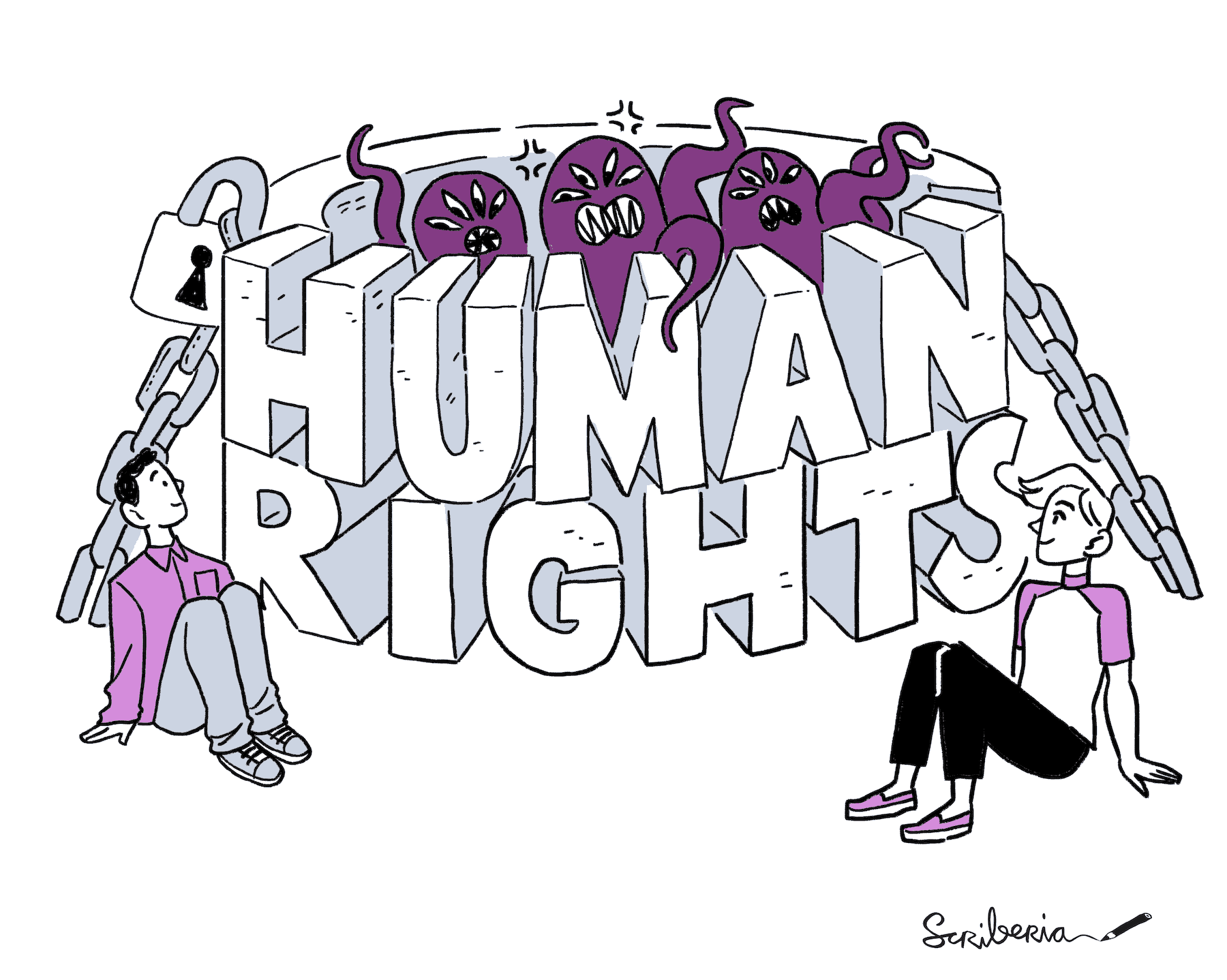Summary¶
Law, human rights and policy all relate to ethics, but they are not the same thing.
You should be aware of the laws and policies that apply to you and your work. However, this is not sufficient to ensure that your work is ethical.
Human rights provide a legal framework for protecting individuals. However, this framework operates at national and international level. Ethical work should be grounded in human rights, but sometimes require more guidance to operationalise for particular contexts.
Laws and policies are made by people, and they are subject to negotiations and exercises of power: they can also be changed.

Figure 1:Illustration about human rights, law and policies. The Turing Way project illustration by Scriberia. Used under a CC-BY 4.0 licence. DOI: 10.5281/zenodo.3332807.
Motivation and Background¶
It’s useful to know how the ethics that guide your work are underpinned by other frameworks, including law, policy, and human rights. Knowing the law, policy, and human rights that underpin research ethics will give you a deeper understanding of how to conduct ethical research. It can also help you to advocate for ethical work with colleagues and collaborators.
This chapter provides subchapters on Law and Policy in the context of ethical research, Human rights and Recommendations and Resources.
Read the Legal disclaimer: The Turing Way is not legal advice! for why you should not use The Turing Way for legal advice.